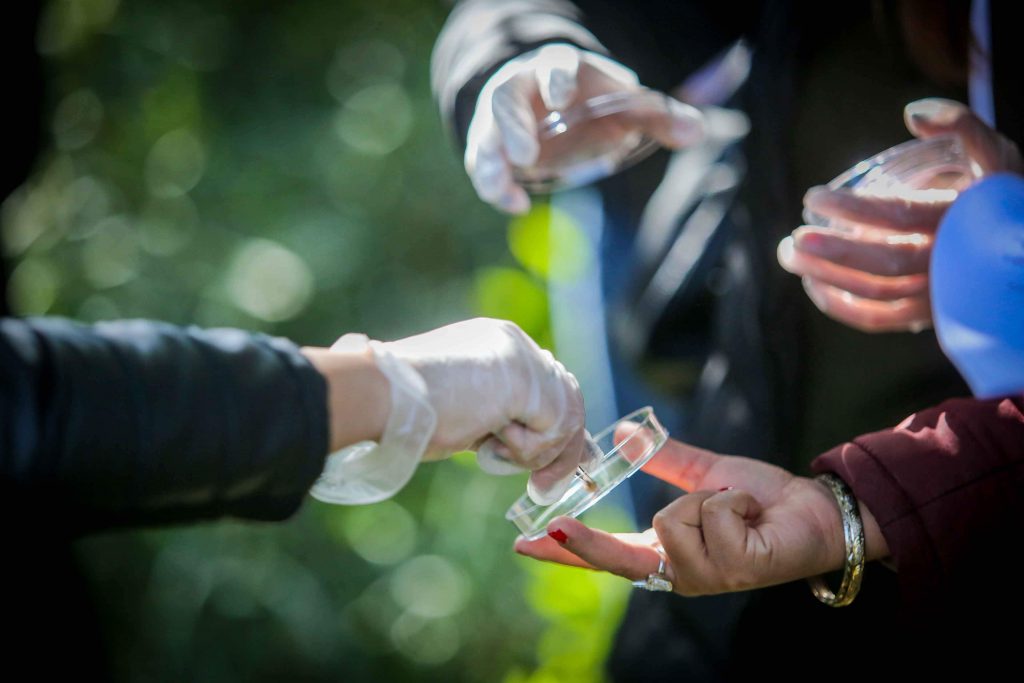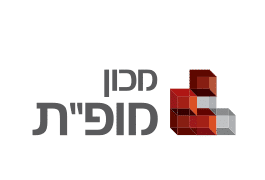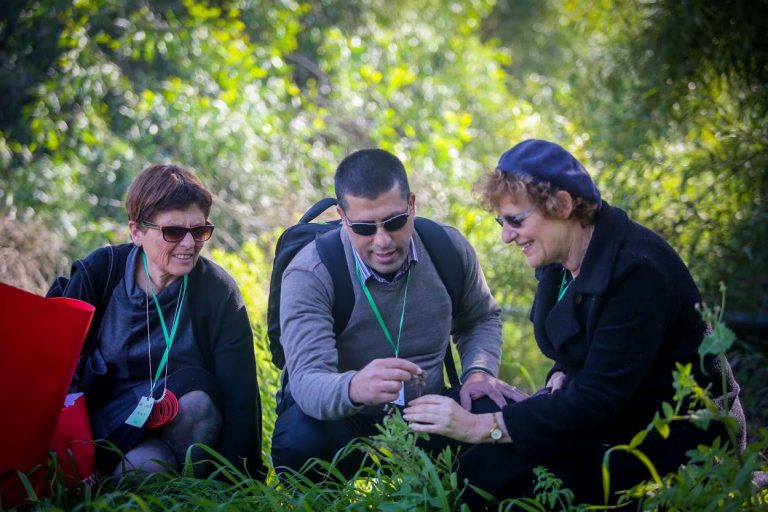
The science world deals with empirical facts and evidence, but does not focus on bridging and connecting beliefs and ways of life. As an innovative approach and a means for a unique connection between the natural sciences, social sciences, culture, and technology, TEC Center opened a one-year online course on ecology, environmental protection, and sustainability. The course is taught online in a multicultural environment that bridges geographical and cultural gaps, and facilitates a discourse typified by mutual understanding and respect.
The pilot program was launched in 2011 with three teacher training colleges from the various populations sectors: Talpiot Academic College of Education in Holon, Al-Qasemi Academic College of Education, and Oranim Academic College of Education. In 2012, the program’s activities expanded, and seven colleges from different regions and cultures around Israel participated in the course: Achva Academic College, Al-Qasemi, Beit Berl Academic College, Arab Academic College of Education in Haifa, Lifshitz Academic College of Education, Kaye Academic College of Education in Beer Sheva, and Talpiot. In 2013, Ohalo College – Academic Institute for Education, Sciences and Sports in Katzrin joined the program.
The work is conducted in collaborative online environments in accordance with the TEC Model. The learners work on innovative platforms used in the education system. Throughout the year, nine synchronous online sessions are held, which are given by the course staff to all the students participating in the course. In addition to the mixed groups of students, asynchronous lessons are provided, which expand on the subject of the lesson, and create a collaborative space within the groups of students.
The course consists of heterogeneous groups. An instructor, a member of the teaching staff, is attached to each group and is responsible for the students’ activities: supervising, instructing, and assessing their work. The course coordinator supervises the overall activities, and guides the instructors.
During the year, each lecturer takes the students from his/her college on an ecological tour, which enables the students to compare the results of the different regions where the participating colleges are located. A face-to-face encounter between the students and their colleagues is held mid-year at MOFET Institute. A tour is held in this environment too, and towards the end of the year, an additional encounter is held in one of the participating colleges.
Course content
Introduction to ecology, ecosystems, material balance, ecological violations by human activity, energy and food in ecosystems, interactions between biotic elements, human intervention in nature, water, air, pollutants, greenhouse effect, hole in the ozone layer, solid waste, waste treatment methods: waste minimization, reuse, recycling, and others, ecosystem services, ecological footprint, evolution of environmental thinking, local sustainability, community and involvement, active citizenship, and activism.
The lecturers meet before the beginning of the academic year for two days of team building and preparation, to formulate the content of the course, and divide the work between them. In recent years, these preparation days have been held in Haifa, Acre, Jerusalem, Sde Boker, and Shlomi. Most of the lecturers, like the students participating in the course, are exposed to and experience using advanced technologies for the first time. They also participate in conferences where they present the course and the work carried out in its framework.
The character of the course and the way it is conducted arouse the students’ interest and contribute to them, as expressed by one student: “I think each one brings their unique line of thinking, and ideas from the culture in which they live, and it’s interesting to hear additional directions. This, of course, besides the issue of unity – which is undoubtedly important in this country”.
The course staff develops and updates the materials and the students’ activities every year in order to meet the educational challenges in light of anticipated and current changes in Israeli society.
Course Director: Prof. Eli Zaadi.
Photo Album
Click the album to see photos:


